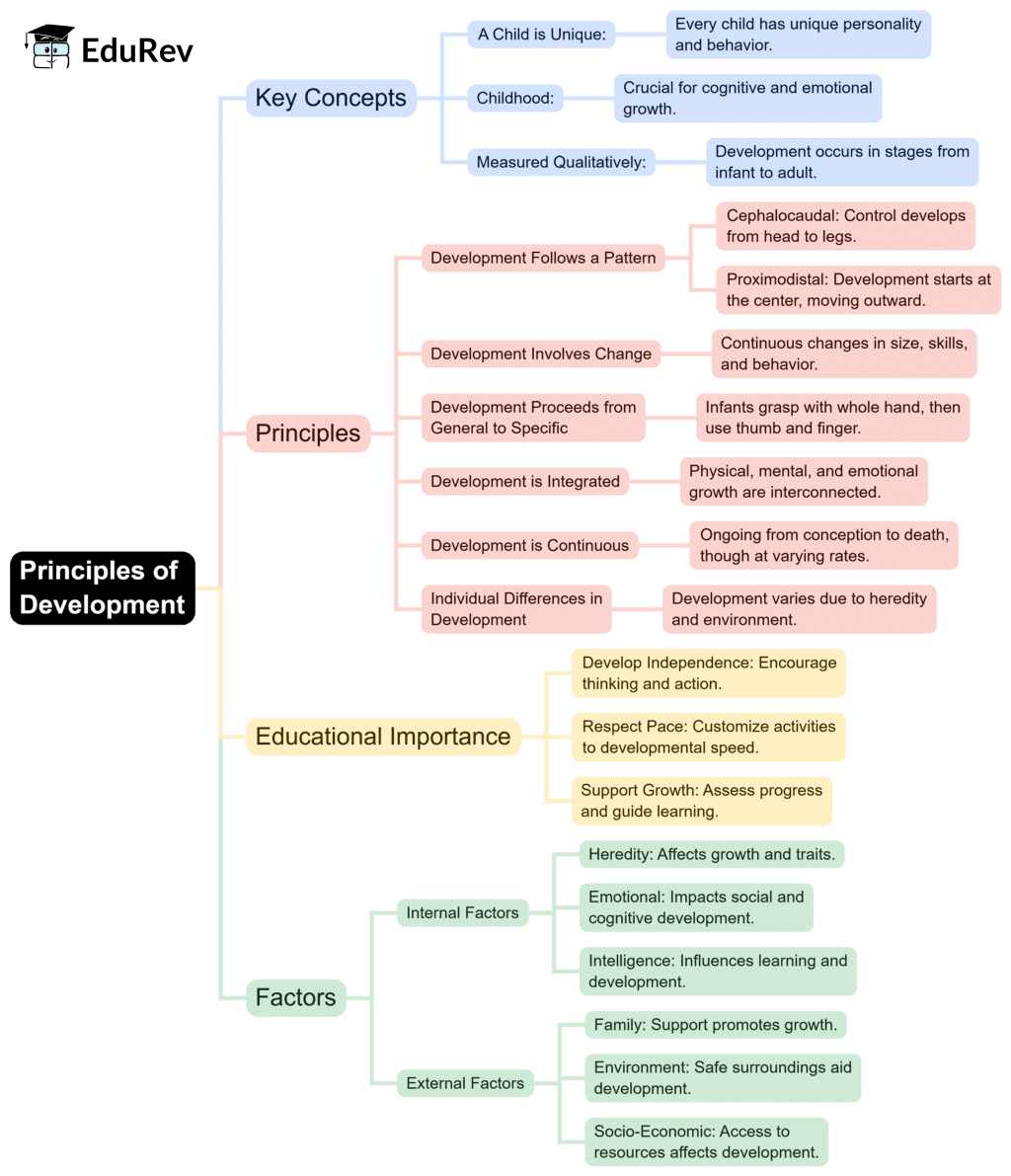CTET & State TET Exam > CTET & State TET Notes > Child Development and Pedagogy for CTET Preparation > Mind Map: Principles of Child Development
Mind Map: Principles of Child Development | Child Development and Pedagogy for CTET Preparation - CTET & State TET PDF Download

The document Mind Map: Principles of Child Development | Child Development and Pedagogy for CTET Preparation - CTET & State TET is a part of the CTET & State TET Course Child Development and Pedagogy for CTET Preparation.
All you need of CTET & State TET at this link: CTET & State TET
|
67 videos|154 docs|41 tests
|
FAQs on Mind Map: Principles of Child Development - Child Development and Pedagogy for CTET Preparation - CTET & State TET
| 1. What are the key principles of development? |  |
Ans. The key principles of development typically include sustainability, inclusivity, equity, participation, and accountability. Sustainability emphasizes long-term viability of development efforts. Inclusivity ensures that all individuals, regardless of their background, have a voice in the development process. Equity focuses on fair distribution of resources and opportunities. Participation encourages stakeholder engagement, and accountability holds actors responsible for their actions and outcomes.
| 2. How does the principle of sustainability influence development processes? |  |
Ans. The principle of sustainability influences development processes by ensuring that economic growth does not come at the expense of environmental health or social equity. It encourages decision-makers to consider the long-term impacts of their actions on future generations, promoting practices that protect natural resources and foster social well-being. This approach leads to balanced development that can be maintained over time.
| 3. Why is inclusivity important in development? |  |
Ans. Inclusivity is important in development because it ensures that marginalized and underrepresented groups have access to opportunities and resources. This principle fosters social cohesion and reduces inequalities, which can lead to more sustainable and effective development outcomes. By involving diverse perspectives, development initiatives are more likely to address the needs of the entire community, enhancing overall effectiveness.
| 4. What role does participation play in development initiatives? |  |
Ans. Participation plays a crucial role in development initiatives by empowering communities to take an active role in decision-making processes. It encourages collaboration between stakeholders, leading to more relevant and accepted solutions. Participatory approaches also help to identify local needs and priorities, ensuring that development efforts align with the aspirations of the people they aim to serve.
| 5. How can accountability be ensured in development practices? |  |
Ans. Accountability can be ensured in development practices through transparent reporting, stakeholder engagement, and the establishment of clear goals and metrics for success. Mechanisms such as regular audits, feedback loops, and community monitoring can provide checks and balances to hold organizations and individuals responsible for their actions. This builds trust and enhances the effectiveness of development initiatives.
Related Searches
















